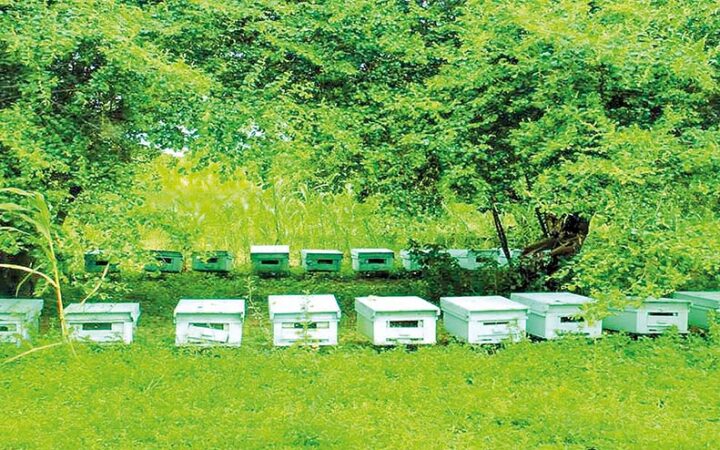September 26, 2022
The Apiculture Division under the Livestock Breeding and Veterinary Department (LBVD) has been conducting beekeeping training course and advanced courses for those beekeepers working on a manageable scale and a commercial scale and those involved in mixed cropping-beekeeping businesses, with a view to boosting Myanmar’s honey exports.
Myanmar’s honey is being shipped to the US, Japan, China, the Republic of Korea, Singapore and Thailand. Myanmar’s beekeeping business began in 1979 and honey export started in 1985. China is the most honey producing country in the world and Myanmar, Vietnam and Thailand are the leading producing countries among ASEAN. Myanmar’s Niger honey, sunflower honey and jujube honey have earned a good reputation in the international markets. Out of them, Myanmar’s sunflower honey is highly demanded. As agriculture and livestock farms are the backbone of the country’s economy, Myanmar is trying to meet the foreign demand on honey and improve honey production and quality.
“Advanced beekeeping courses aim to enhance rural economic development of the beekeepers. The Apiculture Division is providing courses on basic training, bee pest and disease management, queen bee raising and Good Apiculture Practices for the beekeepers. As the business is lucrative for those involved in mixed cropping-beekeeping business and beekeepers, courses on enhancing honey quality are being offered,” said U Kyi Thein, deputy director of the Apiculture Division under Yangon Region LBVD.
Myanmar’s jujube honey produced from Kani, Budalin and Yinmabin townships in Sagaing Region, Yamethin and Pyawbwe townships in Mandalay Region, Magway and Natmauk cities in Magway Region, Niger honey from Shan and Kachin states and Sagaing Region, rubber honey in Mon and Kayin states and Bago Region, sunflower honey in Sagaing and Mandalay regions, flower honey from Sagaing, Mandalay, Bago, Magway and Yangon regions, Shan, Kachin and Kaya states and Nay Pyi Taw are found in the markets.
The LBVD has been training the staff related to advanced beekeeping so that they can conduct refresher training courses for the beekeepers. It has opened 21 batches so far. Sagaing Region is the major producer of honey in Myanmar, accounting for 60 per cent of overall production. There were 835 private beekeepers in 2021.
Myanmar’s honey was primarily purchased by Japan, China, the Republic of Korea, Singapore and Thailand. Myanmar’s honey penetrated European Union countries in 2020. The LBVD is making efforts to adopt foreign queen bees to improve productivity and quality of honey in addition to local origins.—Nyein Thu (MNA)/GNLM


